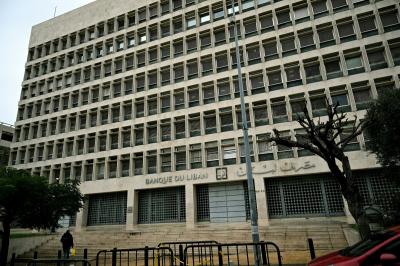In the years following Lebanon’s financial collapse, estimates of the country’s gross domestic product (GDP) have multiplied. Hardly a single local or international body has resisted weighing in on this crucial economic indicator—the yardstick of a state’s economic health and growth. All agree that Lebanon’s GDP has lost more than half its value during these lean years. But the scale of that decline is deeply contested, with differences amounting to billions of dollars between supposedly professional institutions.
According to Lebanon’s Ministry of Finance, GDP shrank from roughly $55 billion in 2019 to about $28 billion in 2024. The World Bank, however, put last year’s figure at $26 billion, the International Monetary Fund at $28 billion, while the Institute of International Finance went higher still, estimating $32.8 billion.
Numbers That Don’t Add Up?
Neither the local nor international figures have convinced Lebanon’s private sector leaders or its economic researchers, who argue the estimates grossly understate the true size of the economy. A recent study by Lebanon Opportunities, pointedly titled “Mission Impossible – Estimating GDP,” calculated GDP at over $40 billion. This figure did not even include certain expenditures such as municipal spending funded by direct fees, changes in jewelry and precious metals consumption, or Lebanon’s large cash economy—estimated at a minimum of 10 percent. Factoring these in could add another $5 billion, pushing the real GDP for last year to around $45 billion.
The analysis used the “expenditure approach,” since its components—household spending, investment, government spending, and net trade balance—are the most accessible or easiest to approximate.
Why the Discrepancies?
The gaps in GDP estimates stem from multiple factors, chief among them the lack of reliable data. As Lebanon Opportunities put it, “Economics is a social science, not an exact science.” All statistics are uncertain, and GDP estimates can only ever approximate reality. National accounts, in particular, depend on numerous assumptions and disparate data sources. As such, there is no objective measure of accuracy or margin of error in GDP accounting.
A Hidden Interest in Lower Numbers
Unlike many countries that prefer to inflate GDP figures, Lebanon seems to benefit from keeping them low. Smaller GDP estimates reduce the country’s financial contributions to international organizations such as the IMF and the United Nations, where dues are linked to economic size. They also strengthen Lebanon’s case for international aid and debt relief on the grounds of poverty and incapacity.
Crucially, accepting artificially deflated figures—by as much as $18 billion below reality—provides cover for austerity policies. With GDP as the baseline for nearly all economic indicators, a lower number makes government spending appear excessive, per capita income smaller, and budget deficits larger. This, in turn, justifies further austerity and dependence on foreign assistance.
Economists warn, however, that underreporting GDP can do more harm than good. It undermines Lebanon’s credit rating, damages its international reputation, deters foreign investment, and distorts domestic planning by producing misleading benchmarks.
Still, in Lebanon’s case, officials may see the upside outweighing the costs. A state mired in debt defaults, corruption, and an $80 billion hole in its banking sector has little to lose from diminished investor confidence. On the contrary, presenting itself as destitute may attract more aid—without delivering the reforms the international community demands. That, analysts caution, may be the most dangerous outcome of all.
Please post your comments on:
[email protected]
 Politics
Politics













